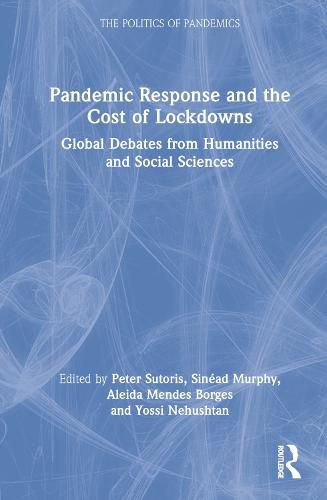Readings Newsletter
Become a Readings Member to make your shopping experience even easier.
Sign in or sign up for free!
You’re not far away from qualifying for FREE standard shipping within Australia
You’ve qualified for FREE standard shipping within Australia
The cart is loading…






Pandemic Response and the Cost of Lockdowns brings the vast analytical apparatus of the humanities and social sciences to the task of critically analysing the political decisions taken in 2020-21.
The global response to the Covid-19 pandemic left little time for critical debate about the impact of lockdowns. Across the world, governments claimed to ‘follow the science’, but they rarely paid attention to the humanities and social sciences. Indeed, the absence of these perspectives is symptomatic of a longer-term trend in the marginalisation of the humanities and social sciences in policy-making and public debate. This book exposes the tragic consequences of this omission in 2020-21 and demonstrates the potential for a different path in the future - a path in which we pay attention to power, complexity, and our biases. The authors establish what these disciplines have to offer in a global emergency and how we can ensure they help us avoid the mistakes of 2020-21 in the future.
This original and interdisciplinary book will be of great interest to students, scholars, and researchers throughout the humanities and social sciences, including the fields of philosophy, sociology, anthropology, law, political science, and history, as well as relevant policy-makers.
$9.00 standard shipping within Australia
FREE standard shipping within Australia for orders over $100.00
Express & International shipping calculated at checkout
Pandemic Response and the Cost of Lockdowns brings the vast analytical apparatus of the humanities and social sciences to the task of critically analysing the political decisions taken in 2020-21.
The global response to the Covid-19 pandemic left little time for critical debate about the impact of lockdowns. Across the world, governments claimed to ‘follow the science’, but they rarely paid attention to the humanities and social sciences. Indeed, the absence of these perspectives is symptomatic of a longer-term trend in the marginalisation of the humanities and social sciences in policy-making and public debate. This book exposes the tragic consequences of this omission in 2020-21 and demonstrates the potential for a different path in the future - a path in which we pay attention to power, complexity, and our biases. The authors establish what these disciplines have to offer in a global emergency and how we can ensure they help us avoid the mistakes of 2020-21 in the future.
This original and interdisciplinary book will be of great interest to students, scholars, and researchers throughout the humanities and social sciences, including the fields of philosophy, sociology, anthropology, law, political science, and history, as well as relevant policy-makers.